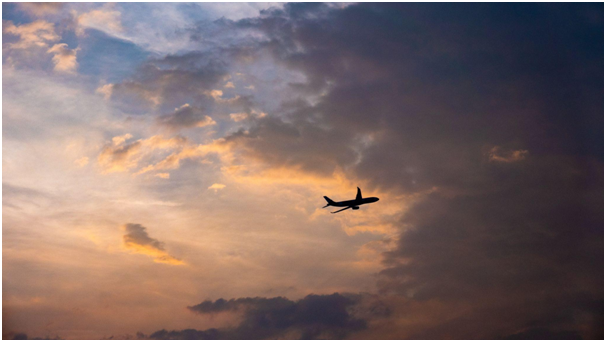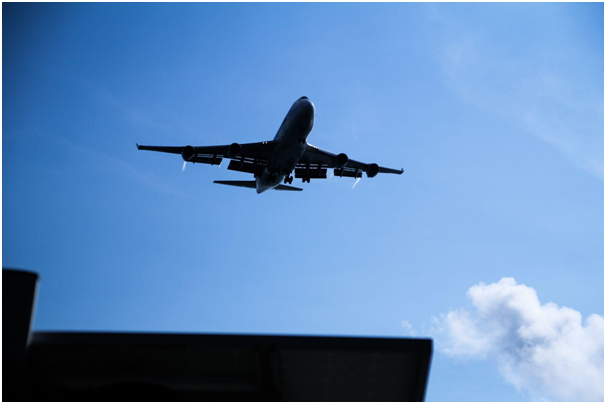The last 18 months must feel like a lifetime to the air service industry. So much has changed, most of it unanticipated. The simple task of supplying Pharmaceutical products to a world reeling under the effects of COVID-19 has prompted a change.
Let’s look at what we know and what is likely to happen with air services going forward.
What is a bilateral air services agreement?
The bilateral air services agreement (BASA) is an agreement between two or more countries that allows commercial airline companies (airlines) to fly passengers and cargo between these countries.
The BASA also covers rights for airlines of one contracting state to operate scheduled air transport services over the territory of another contracting state, known as “third freedom of the air.” BASA helps to promote and develop international civil aviation and encourage friendly relations between contracting states.
The International Air Transport Association (IATA) is a trade association of the world’s airlines. IATA has developed a standard form for BASAs, which has been used by most countries when concluding new agreements. The IATA BASA template includes several articles that include guidance on air services, right down to prices and charges. Interested parties can review more information here.
BASA usually comes into effect once both contracting states have ratified the agreement. The IATA template is not mandatory, and some countries have negotiated different articles in their agreements.
Also Read: #TeleprompterPM: All you need to know about this trending hashtag targeting PM Modi’s WEF Speech
An example of a working BASA
The bilateral air services agreement (BASA) between Singapore and Germany, signed in December 2016, is an excellent example of the benefits of a BASA. The deal will allow airlines of both countries to operate scheduled air services between Singapore and Germany and third-country operations.
It will also enable airlines of both countries to codeshare on each other’s flights. In addition, the agreement includes a new flight routing through Munich and Singapore on routes between Europe and Southeast Asia. It will allow passengers and cargo to be flown via the connection at Munich instead of flying via another European hub such as London.
By allowing airlines to operate more efficient flight paths, the bilateral air services agreement will contribute towards a rising number of travelers and cargo traffic between the two countries. Hence, it is safe to say that BASA has optimist benefits.

How does the Open Skies Agreement differ from a BASA?
Bilateral air services agreements (BASAs) are different from open skies agreements. A BASA is an agreement between two or more countries that allow commercial airline companies to fly passengers and cargo between each other’s countries. In comparison, an open skies agreement is a treaty that removes all restrictions on the number of airlines allowed to fly between two countries and the destinations they can serve.
Open skies agreements are often seen as more liberal, allowing for more competition and choice for consumers. As a result, open skies agreements often lead to lower prices and improved service quality. Open skies agreements are also more beneficial for the aviation industry as they help stimulate traffic and investment.
An example of an Open Skies Agreement
An example of an open skies agreement is the US-EU agreement, which came into effect in 2008. The agreement allows airlines from either country to fly between cities in the United States and any city in the European Union. As a result, airlines flying between the United States and Europe have increased, and passengers have benefited from more choice and competition.
Some people argue that open skies agreements are not as beneficial for smaller countries, as they can be outcompeted by bigger airlines. However, this can be avoided by including a “fairness clause” in the agreement. The clause will treat all airlines equally regardless of their size.
What are some of the benefits of bilateral air services agreements?
Bilateral air services agreements (BASAs) are agreements between two or more countries that allow commercial airline companies to fly passengers and cargo between countries.
BASAs generally include several articles that specify the rights and privileges of the airlines, as well as regulations around fares, charges, and other commercial aspects.
Benefits of a BASA include:
- Improved network connections between countries
- Increased passenger and cargo traffic
- Increased tourism
- Stimulation of aviation industry
- Balanced development of aviation industry within countries
Are bilateral air services agreements becoming less popular?
Bilateral air services agreements are becoming less popular as countries move towards open skies agreements. Open skies agreements are more liberal and beneficial for the aviation industry and include the removal of all restrictions on the number of airlines allowed to fly between two countries and the destinations they can serve.
As a result, bilateral air services agreements are becoming less common as more countries sign open skies agreements. However, not all countries are ready or willing to move to an open skies agreement, so bilateral air services agreements will continue to be signed for some time.

How will a new BASA affect India specifically?
If the Indian government decides to renegotiate its BASAs, they will likely be more favourable to the domestic airlines.
A review could lead to an increase in traffic and investment in the aviation industry in India. However, any changes may take time to implement, and so passengers will not realize the full benefits of a revised BASA for some time.
In conclusion, while bilateral air services agreements are becoming less popular as countries move towards open skies agreements, they still benefit the aviation industry. The Indian government is considering reviewing its BASAs, which could help the industry by allowing for more liberal arrangements to stimulate traffic and investment.

 ‘All Eyes On POK’: Elvish Yadav Satire On Celebs Supporting Rafah, Ignore Issues Closer To Home
‘All Eyes On POK’: Elvish Yadav Satire On Celebs Supporting Rafah, Ignore Issues Closer To Home Patna University Murder Video: Student Harsh Raj Brutally Beaten To Death By Masked Men
Patna University Murder Video: Student Harsh Raj Brutally Beaten To Death By Masked Men Bobby Kataria Arrested For Human Trafficking; Other Pending Cases Against Him Explored
Bobby Kataria Arrested For Human Trafficking; Other Pending Cases Against Him Explored Indian Soldiers Won in Tug-of-War with Chinese Soldiers at UN Peacekeeping Mission in Sudan: Watch the Viral Video!
Indian Soldiers Won in Tug-of-War with Chinese Soldiers at UN Peacekeeping Mission in Sudan: Watch the Viral Video! Prajwal Revanna To Appear Before SIT On May 31, Apologize To Parents In A Video Release
Prajwal Revanna To Appear Before SIT On May 31, Apologize To Parents In A Video Release WATCH: AAP Punjab Minister Balkar Singh, in Obscene Video Call Viral; BJP and SAD Demand Action
WATCH: AAP Punjab Minister Balkar Singh, in Obscene Video Call Viral; BJP and SAD Demand Action New Footage Of The Tragedy At Rajkot’s Game Zone that killed 27 Emerges
New Footage Of The Tragedy At Rajkot’s Game Zone that killed 27 Emerges Pradhan Mantri Kaushal Vikas Yojana 2024 Online Application, Courses List, Eligibility Criteria and All You Need To Know
Pradhan Mantri Kaushal Vikas Yojana 2024 Online Application, Courses List, Eligibility Criteria and All You Need To Know